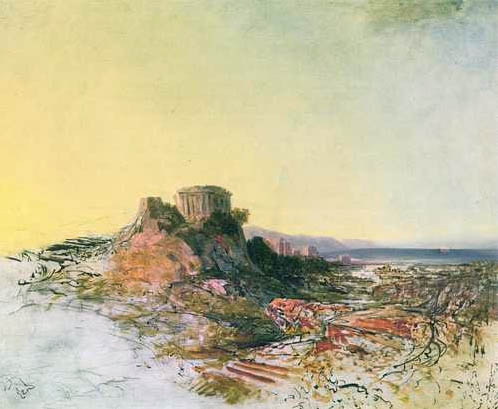Jeroen Vanheste‘s essay first explores T. S. Eliot’s “classicist” approach to culture and his religiosity as elements of a unitary European cultural heritage. The essay then goes on to discuss the poet’s views on human reason and personhood, which implies an element of moral responsibility. Vanheste argues that Eliot’s ethical conception of culture as “a whole way of life” establishes a constitutive link between art and literature on the one hand and politics, economics, education and science on the other. One of the consequences of that link is an ethically based notion of economics. — The present text will be part of the second volume of the book series Elementa œconomica, dedicated to the theme of “hospitable economics”, which will be published in 2016.
Left: Adalbert Stifter, Die Heiterkeit. Griechische Tempelruinen [2] (around 1860)
